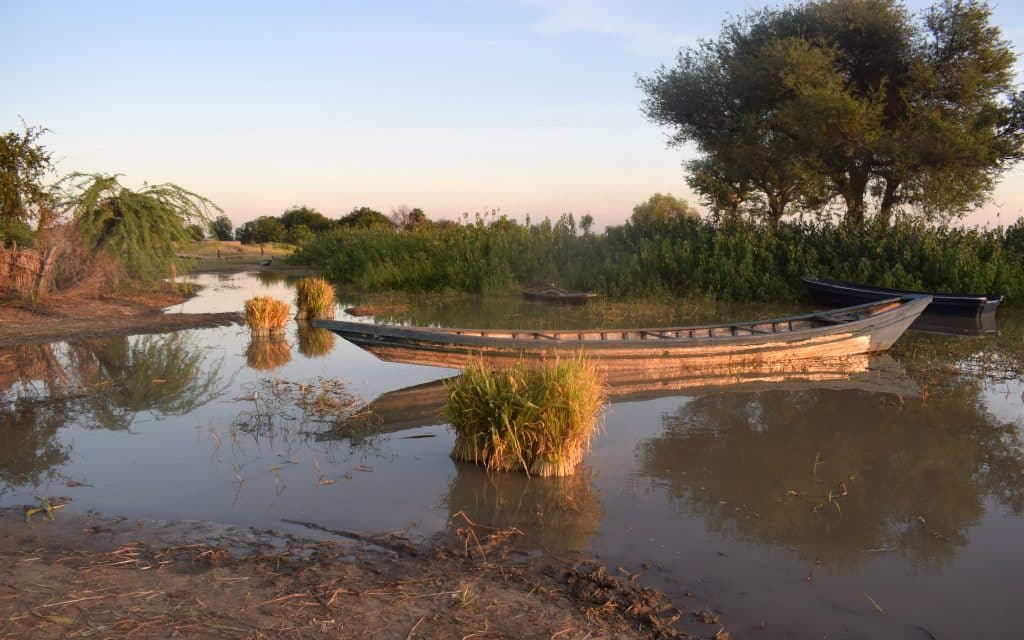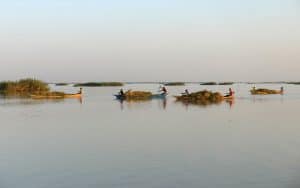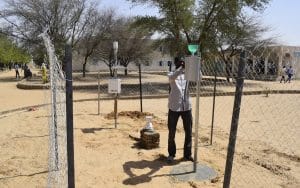- Home /
- Science /
- Climate /
- Climate projects /
- LMI VIABELEAUX /
LMI VIABELEAUX
Lake Fitri, which is located in the heart of Chad (12°N - 17°E) and has a catchment area located entirely in the Sahelian zone, is identified as the LMI workshop site.
Its relatively modest size (600 km²), the age of its population, of the activity systems and of the sultanate that regulates access to natural resources, and its recognition as a biosphere zone, make it an ideal site for longitudinal monitoring of the ecosystem in relation to current activities and social dynamics, on the one hand, and for experimenting with a new form of local governance, on the other hand, a hybrid between a customary power that is losing legitimacy and the administrative authorities. This little-known lake is also identified as an indicator of climate variability for the central Sahel.
The contribution of legal sciences and the concept of coviability developed in the framework of conservation sciences constitutes a lever for action that we wish to experiment with in the case of Lake Fitri.
The LMI VIABELEAUX is based on the experience and network of researchers that has been built up over several years from two French UMRs (CEREGE on hydrogeology and paleoclimatology, PRODIG on environment and development issues), a Chadian university (N'Djamena with the Masters in Geography, Anthropology and HydroSig) and the CNRD (Chadian National Development Research Centre). This core is reinforced by the participation of the UMRs Espace-Dev and its contribution on the aspects of environmental regulation and governance, and the University of Strasbourg on the geomorphological analysis of landscapes and the CNES for its expertise on spatial hydrology and modelling. The UMR LISST, CEPAM and LESC contribute their experience in the fields of archaeology, pastoralism, ethno-botany and the anthropology of power. On the Chadian side, two laboratories from the universities of Ati and Sarh, thanks to their expertise in the environment (e.g. vegetation cover, land use, and composition of aquatic fauna) are associated with the project.
2020-2024: LMI VIABELEAUX
CEREGE lead :
Florence Sylvestre
Sustainability of socio-ecosystems in the Sahel in the face of global change
Foreign collaborators:
University of N'Djamena, CNRD (Chadian National Research Centre for Development)
The UMRs LISST, CEPAM and LESC
Universities of Ati and Sarh (Chad)




